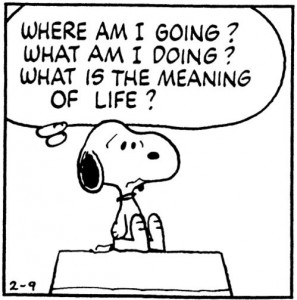Solomon had the advantage! His father, David, had fought and won all the wars for the establishment of the Kingdom. Solomon inherited a world at peace. He was able to amass huge wealth. He was able to accomplish great feats.  He was able to dedicate all his time to the pursuit of knowledge and understanding. He was able to establish a worldwide influence over all nations. He was able to indulge every thirst, every hunger, and every lust without worldly consequences. He had it all! He tells us about that himself. We often think of the rich and the famous in our culture and say “they have it all.” I don’t believe anyone today, including national leaders, had as much as Solomon had. No one today has the freedom and the resources and the success that Solomon had. In spite of it all, Solomon goes on to explain how all that he had left him with no ultimate satisfaction. Although he had everything, he couldn’t find what he wanted and needed most; meaning and purpose for his life. The book of Ecclesiastes is the record of his search for meaning.
He was able to dedicate all his time to the pursuit of knowledge and understanding. He was able to establish a worldwide influence over all nations. He was able to indulge every thirst, every hunger, and every lust without worldly consequences. He had it all! He tells us about that himself. We often think of the rich and the famous in our culture and say “they have it all.” I don’t believe anyone today, including national leaders, had as much as Solomon had. No one today has the freedom and the resources and the success that Solomon had. In spite of it all, Solomon goes on to explain how all that he had left him with no ultimate satisfaction. Although he had everything, he couldn’t find what he wanted and needed most; meaning and purpose for his life. The book of Ecclesiastes is the record of his search for meaning.
Unlike Monty Python’s “The Meaning of Life,” where the conclusion of it all is not revealed until the final scene, Solomon’s record begins with his conclusion. His conclusion is given in the second verse of the very first chapter and is repeated 38 times throughout the rest of the book. Ecclesiastes 1:2 says it’s all, “vanity of vanities…all is vanity.” The New International Version puts it this way; “Meaningless! Meaningless!” Utterly meaningless! Everything is meaningless.” The New English Translation (NET) says, “Futile! Futile! Absolutely futile! Everything is futile!” In Eugene Peterson’s translation, The Message, he puts it like this; “Smoke, nothing but smoke. There’s nothing to anything—it’s all smoke.” The Good News Bible translates that verse with this phrase: “It is useless; useless …Life is useless, all useless.”
But there is another phrase in Ecclesiastes 1:3. It uses the phrase “under the sun.” This phrase is repeated another 30 times in the rest of the book. One cannot help but put the two phrases, “all is vanity” and “under the sun” into the proper context. Verse 3 asks “What does man gain by all the toil at which he toils under the sun?” The form of the question is expecting a negative answer. It is suggesting that there is no gain. There is no profit in anything that man might do to occupy his time on earth. And of course there is not purpose in anything we might do in this world. It is indeed as Solomon declares over and over totally meaningless; vanity of vanities! But there is another perspective that does bring meaning and purpose to life; God! Without Him, there’s nothing with Him there’s everything! Paul explains this truth to the Corinthians. He writes in chapter 15 of 1 Corinthians about the resurrection of the dead. There is more to life than what meets the eye under the sun. He closes his argument in 1 Corinthians 15:58 (New Living Translation), by saying, “So, my dear brothers and sisters, be strong and immovable. Always work enthusiastically for the Lord, for you know that nothing you do for the Lord is ever useless.”